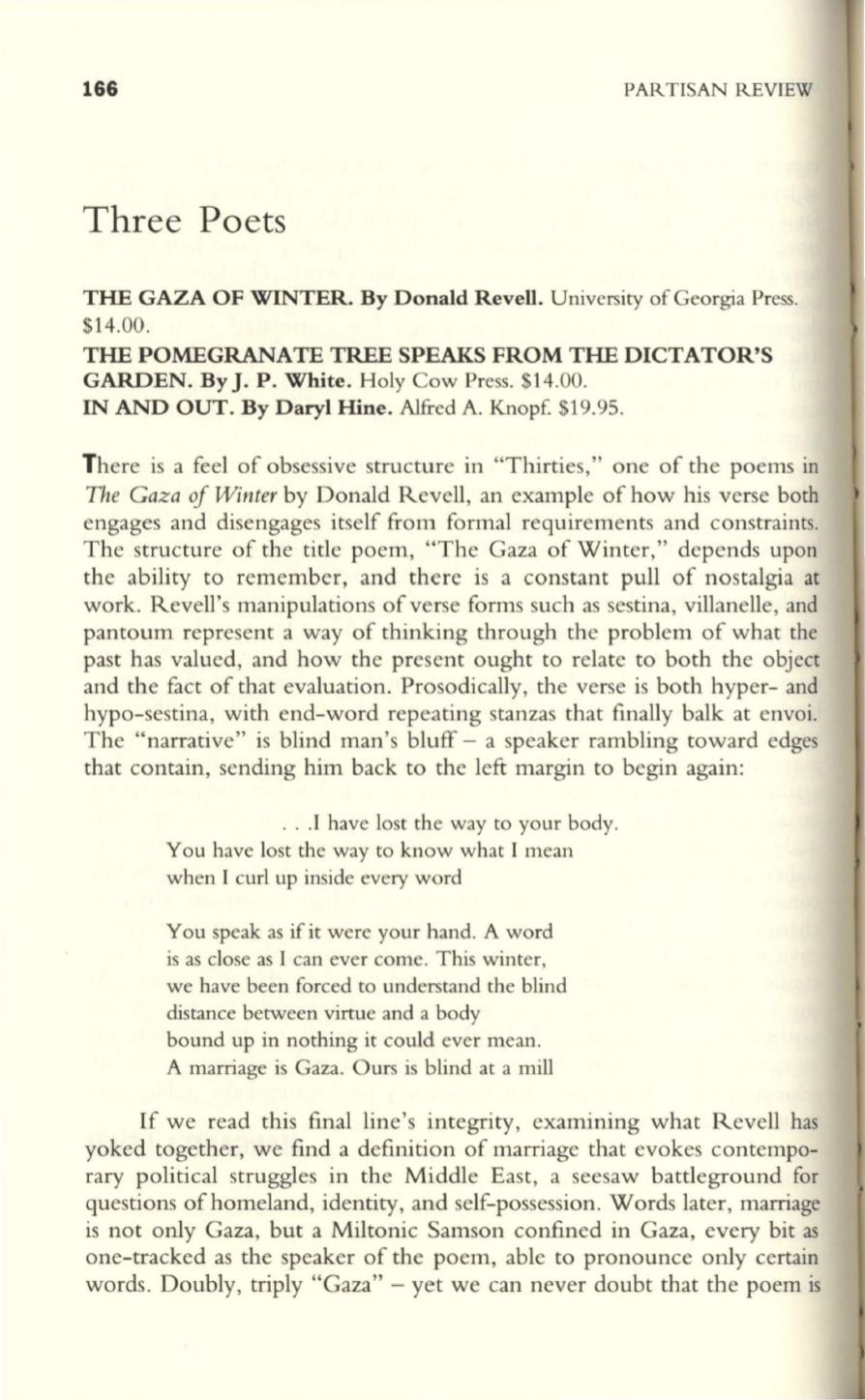
166
PARTISAN REVIEW
Three Poets
THE GAZA OF WINTER. By Donald Revell.
University of Georgia Press.
$14.00.
THE POMEGRANATE
TREE
SPEAKS FROM THE DICTATOR'S
GARDEN. By
J.
P. White.
Holy Cow Press. $14.00.
IN AND OUT. By Daryl Hine.
Alfred A. Knopf $19.95.
There is a feel of obsessive structure in "Thirties," one of the poems in
The Gaza oj Winter
by Donald Revell, an example of how his verse both
engages and disengages itself from formal requirements and constraints.
The structure of the title poem, "The Gaza of Winter," depends upon
the ability to remember, and there is a constant pull of nostalgia at
work. Revell's manipulations of verse forms such as sestina, villanelle, and
pantoum represent a way of thinking through the problem of what the
past has valued, and how the present ought to relate to both the object
and the fact of that evaluation. Prosodically, the verse is both hyper- and
hypo-sestina, with end-word repeating stanzas that finally balk at envoi.
The "narrative" is blind man's bluff - a speaker rambling toward edges
that contain, sending him back to the left margin to begin again:
.. .I
have lost the way to your body.
You have lost the way to know what [ mean
when I curl up inside every word
You speak as if it were your hand. A word
is as close as [ can ever come. This winter,
we have been forced to understand the blind
distance between virtue and a body
bound up in nothing it could ever mean.
A marriage is Gaza. Ours is blind at a
mill
If we read this final line's integrity, examining what Revell has
yoked together, we find a definition of marriage that evokes contempo–
rary political struggles in the Middle East, a seesaw battleground for
questions of homeland, identity, and self-possession. Words later, marriage
is not only Gaza, but a Miltonic Samson confined in Gaza, every bit as
one-tracked as the speaker of the poem, able to pronounce only certain
words . Doubly, triply "Gaza" - yet we can never doubt that the poem is


